Bibliography: academic books
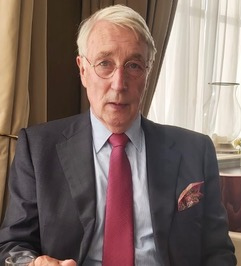
The academic books I have written or co-written are presented below. In cases of co-authorship, I acted as first author.
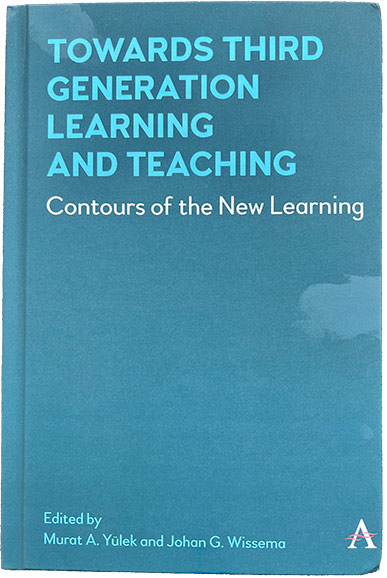
1. Towards Third Generation Learning and Teaching – Contours of the new learning, Anthem Press, London, 2022 (editor with M. Yülek), ISBN-13: 978-1-83998-4-600.
This book is about the new learning. Everything in the area of learning and teaching is changing profoundly. Learning initially consisted of a teacher instructing or giving insight to a small group of followers – Socrates with his students. We call this first-generation learning; it is still the backbone of much education today. With the industrial revolution came second generation learning, industrialised learning, with centralised programmes, qualified teachers, standard textbooks, standard exams, standard diplomas. That model is challenged by developments in learning methods, on the one hand, and new requirements by students and employers on the other. Written by a multidisciplinary team, the book maps this out. It can be considered a sequel to the book below.
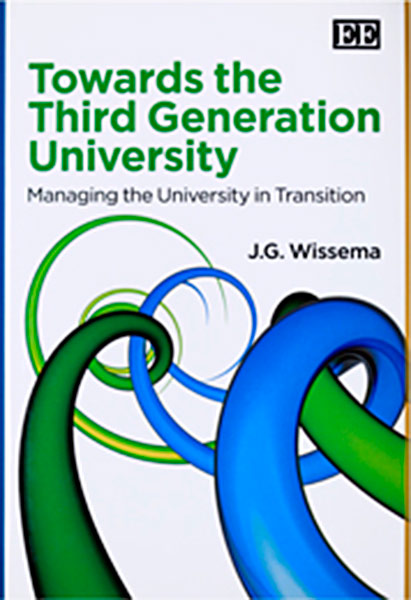
2. Towards the Third Generation University – Managing the university in transition, Edward Elgar, 2009. Also published in:
- Macedonian, University American College, Skopje, Macedonia, 2008
- Polish, Zante Publishers, ISBN 978-83-61308-20-1, 2009
- Turkish, Ozyegin University Press, 2009, second edition 2012
- Russian, Sberbank Library, 2016
- Arabic
- Persian
Medieval universities did not conduct research but passed on the knowledge of the ancient Greeks, Romans, and Church fathers, with the lecturers indulging in their own interpretations. This was the first generation of universities. In the Renaissance, research was started on how nature really worked – think of Leonardo da Vinci dissecting corpses to map anatomy. This developed into modern science that broke through with the founding of the University of Berlin in 1810, now called – after its founder – the Humboldt University. Education was taught for the first time in the national language rather than in Latin, and research was the basis. This model of the second-generationuniversity has brought unprecedented prosperity. Since WWII, new concepts have been introduced that fundamentally change the character of the university – the third generation.
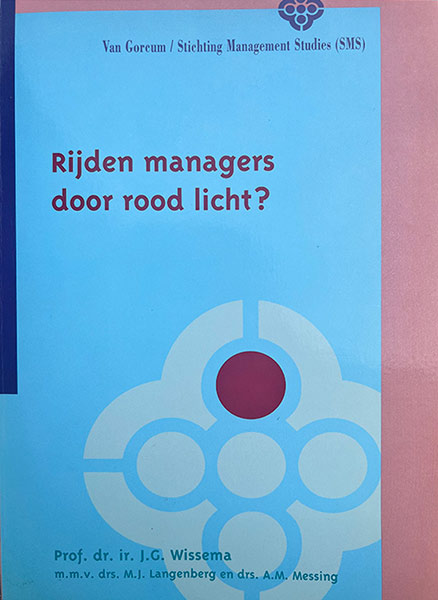
3. Do managers drive through red lights? Van Gorcum/Stichting Management Studies, 1997 (with M.J. Langenberg and A.M. Messing), ISBN 90 232 3307 7. In Dutch.
Every decision-maker sometimes overlooks information or ignores signals of which one can say afterwards: ‘How could you have missed it?’ This book was commissioned by Foundation Management Studies and investigates the causes of 'red light behaviour' and offers remedies. It is based on interviews with managers of leading companies.
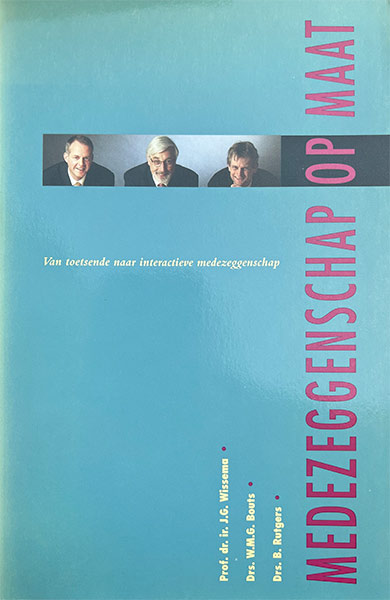
4. Tailor-made participation: from formal to interactive participation, Van Gorcum, 1996 (with W.M.G. Bouts and B. Rutgers), ISBN 90 232 3067 1. In Dutch.
A plea for involving employees in decisions in the business world and showing different ways in which this can be done.
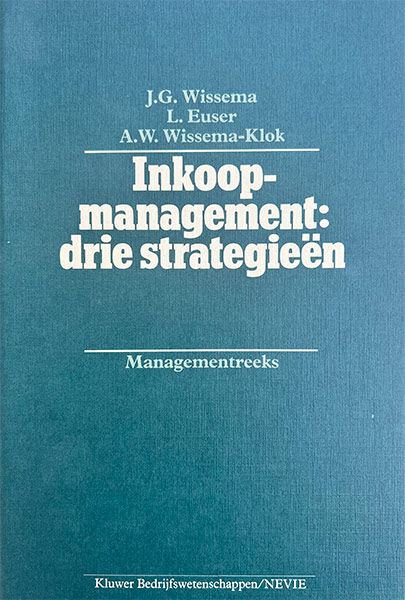
5. Procurement management: three strategies, Kluwer, 1989 (with L. Euser and A.W. Wissema-Klok), ISBN 90 267 1346 0. In Dutch.
Purchasing of mass products is completely different from that of, for example, chips for a computer. Research commissioned by the Dutch Association for Purchasing Management leads to three models for purchasing, each for specific situations.
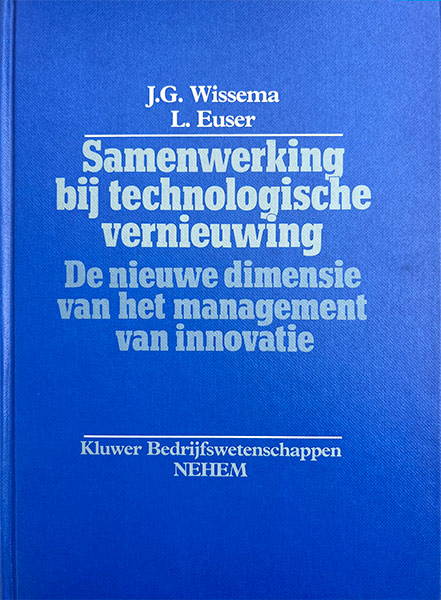
6. Collaboration in technological innovation, Kluwer, 1998 (with L. Euser), ISBN 90 267 1305 3. Second edition 1998. In Dutch.
The time when a company developed new products solely with its own R&D is over. The model is replaced by collaboration with other organisations.
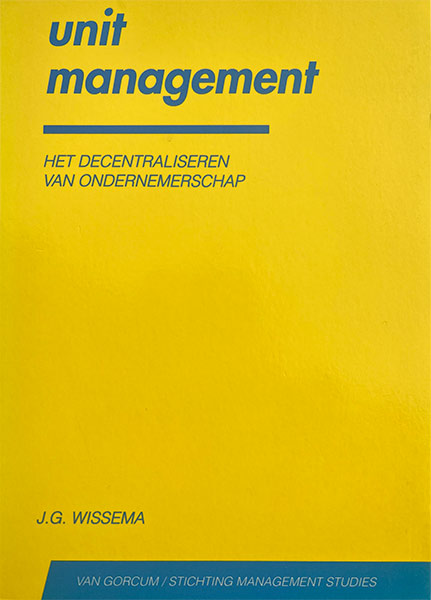
7. Unit management, decentralising entrepreneurship, Van Gorcum, 1987, ISBN 90-232 2657-7. Commissioned by Foundation Management Studies. Eight reprints. 1989 Book of the Year price, Dutch Order of Chartered Management Consultants, OOA.
Original in Dutch. Also published in:
- English, Financial Times-Pitman Publishing, 1992
- Spanish, Bibloteca de Empresa, Folia, 1994
- Italian, Jackson Libri S.r.L./Longman Group, 1995
- Russian, Infra-M, Moscow, 1996
- Turkish, Türkiye Yayin Haklari, 1996, herdruk 1999
- Bulgarian, Publisher Next, Sofia, 1998
This book was a breakthrough in tearing down the 'silos' in companies: marketing, production, research, logistics and others. Communication problems prevent innovation and decisiveness. The remedy is to ‘tilt’ the organisation and create small, functionally complete and profit-responsive units that make the company competitive and lean.
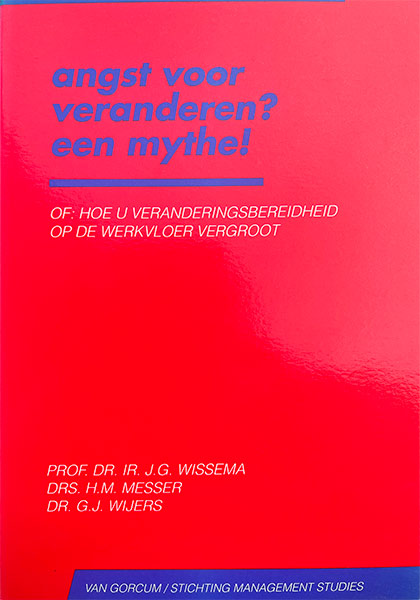
8. Fear of change? A myth! Or: how to increase willingness to change in the workplace, Van Gorcum, 1986 (with H.M. Messer and G.J. Wijers), ISBN 90-232-2635-6. Commissioned by Foundation Management Studies. In Dutch. Seven reprints.
The generally accepted idea is that the ‘top’ is flexible and that, the further you go down into the organisation, the more rigid the attitude becomes. This study shows that this is patently untrue. It demonstrates which factors promote eagerness and/or willingness to change. In short: people do want to change but they don’t want to be changed.
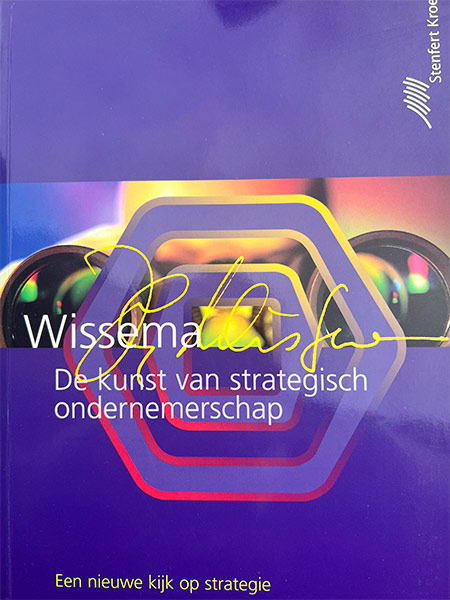
9. The Art of Strategic Entrepreneurship, Kluwer, 1986. Later republished as The Art of Strategic Entrepreneurship, Kluwer and later Stenfert Kroese, ISBN 90 207 30673. Twenty reprints. In Dutch; also published in Russian by Finpress, Moskou, 2000.
One of the first books in the Dutch language about strategic planning, for twenty years it has shown companies and education the way to plan strategically. The book has changed considerably over time; strategic planning became strategic management and then strategic entrepreneurship.
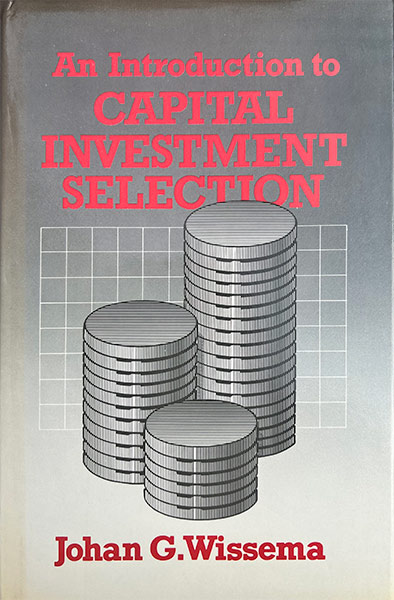
10. An introduction to Capital Investment Selection, Kluwer 1983, ISBN 9026708890. Published in English by Frances Pinter, London and Dover, New Hampshire, February 1985.
A plea for the introduction of a third investment criterion: social acceptance alongside profitability and strategic integration.
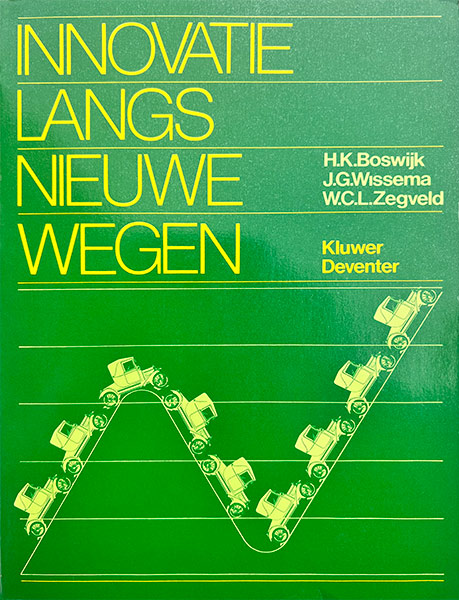
11. Innovation along new avenues, Kluwer, 1980, ISBN 9789026706875 (with H.K. Boswijk and W.C.L. Zegveld).
This book was the breakthrough in government technology policy in the Netherlands.
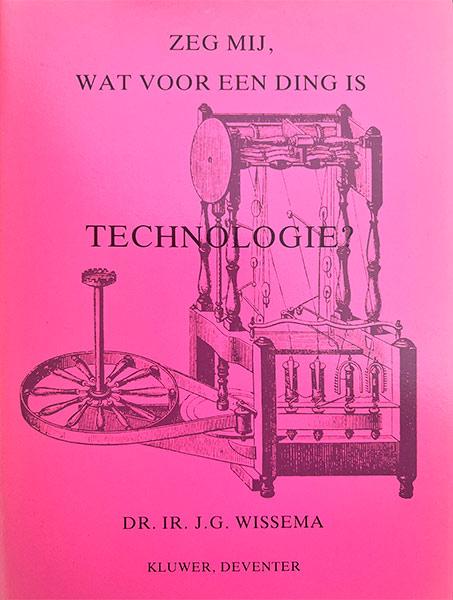
12. Tell me, what kind of thing is technology, Inaugural address, Interfaculty of Business Administration at Delft University of Technology, Kluwer 1982, ISBN 90 267 0818 1. 2nd edition 1983.
A playful inaugural address that even got a reprint.
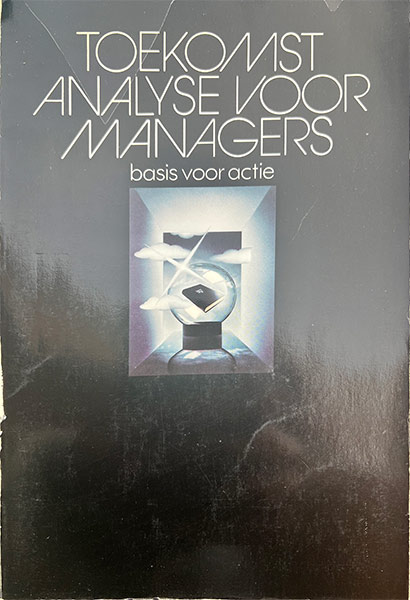
13. Future analysis for managers - the basis for action, Kluwer, 1980 (with J. Eppink), ISBN 90 267 0675 8.
14. Technological and structural developments in construction - a future study, Stichting Bouwresearch, 1980 (with J. Benes).
A study that made surprising predictions.
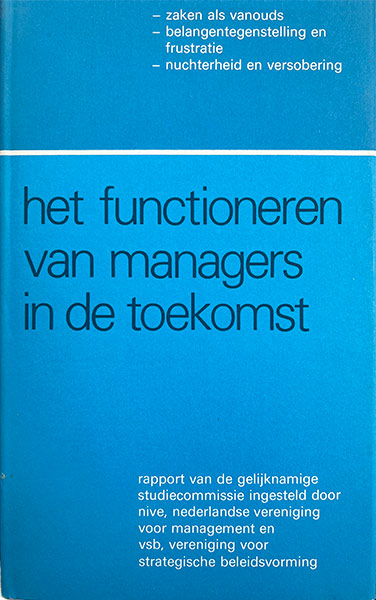
15. The functioning of managers in the future, Kluwer, 1979, ISBN 9026706448.
Three scenarios for management in the future, based on Shell scenarios.
16. Strategic Planning in Practice, Intermediair Publishers, 1979, ISBN 9064340218.
A series of articles I edited in the then journal Intermediair. This publication contributed greatly to the proliferation of strategic planning in the Netherlands.
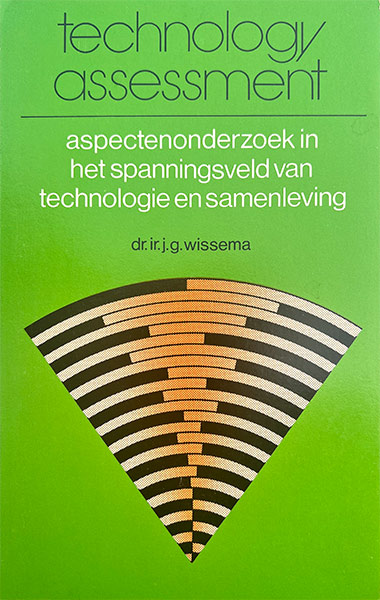
17. Technology Assessment - aspect assessment in the tension of technology and society, Kluwer, 1977, ISBN 90 267 0523 9.
This book introduced the term 'aspectenonderzoek’ in Dutch, a translation of technology assessment. Investigates the societal effects of the introduction of new technology to see how the technology can be optimised before it enters the market.
18. Modelling and control of multicomponent fractionating columns, PhD thesis, University of Manchester Institute of Science and Technology, 1969.
My PhD thesis is about a mathematical model to predict the dynamic behaviour of multicomponent fractionating columns.
19. Vibration prilling, MSc dissertation, Department of Chemical Engineering, University of Groningen, 1967.
About making uniformly sized droplets with a vibrating nozzle.
20. The relative efficiencies of methods of dynamic testing, MSc dissertation, University of Manchester Institute of Science and Technology, 1966.
An investigation of various methods to test the dynamic behaviour of chemical engineering equipment.